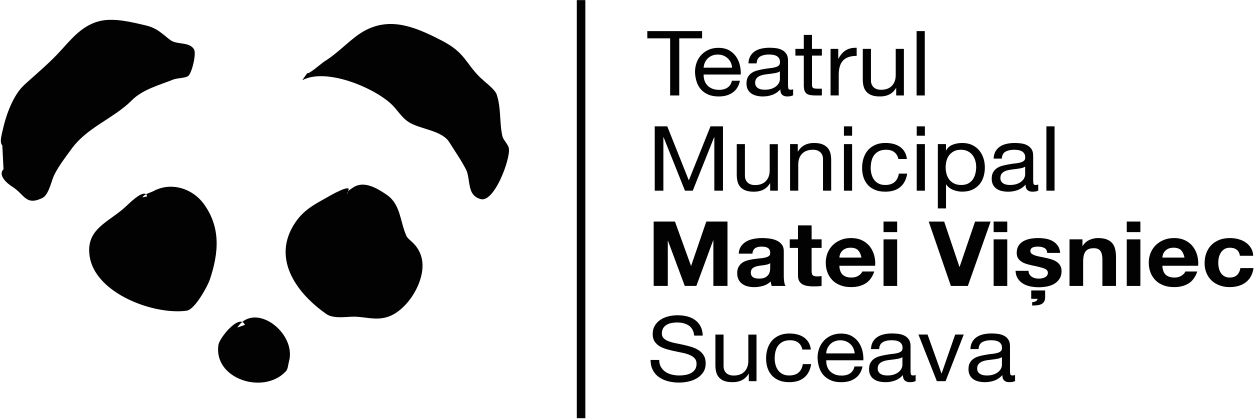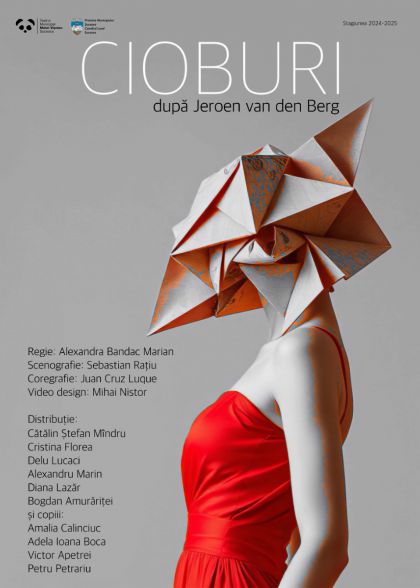News
Festivalul Internațional Zilele Teatrului Matei Vișniec 2022, ecouri britanice. (Nick Awde)
The Matei Vișniec International Days Festival takes place each year in Romania. Nick Awde looks at how this year’s theme of ‘Refreshing Memory’ resonates with the changed landscape of 2022.
The Matei Vișniec Theatre holds its International Days Festival each year in Suceava, high up in the hills of northeast Romania, just over the border from Ukraine and Moldova. It’s a unique gathering that mixes performances of major international shows with talks and debates on issues affecting society, particularly post-communist Europe.
Surprisingly for a regional town with a rich history (it even has its own castle), Suceava has never had a theatre. Like all towns above a certain stature, the communists installed a magnificent quasi-brutalist people’s palace of culture in the main square. But never a theatre.
All that changed six years ago after Matei Vișniec received an odd request from the mayor. “’Matei,’ he said to me,” he recalls, “ ‘we want to have a municipal theatre with its own ensemble of actors… but we need your name on the front of it.’ ”
Let’s pause and skip back in time. Suceava is Vișniec’s hometown, but the writer, who was one of Romania’s literary ‘Eighties Generation’, left Ceaușescu’s communist regime to claim political asylum in Paris. There he started also writing in French and joined the Romanian language service of Radio France Internationale.
As a broadcaster and journalist his voice became well known back home, while as a playwright his reputation grew internationally thanks to politically charged yet poetically absurd plays such as Occidental Express, Migraaaaants!, How to Explain the History of Communism to Mental Patients and The Body of a Woman as a Battlefield during the Bosnian War.
Responding to and documenting each evolutionary stage of Romania’s post-communist transition, Vișniec found himself one day ten years ago starting a festival with a group of friends in Suceava. “In the region we have everything, tradition, history, folklore, but we never had a theatre. We had plays coming from other towns but never a true theatre to stage them. So we started the International Days Festival and within four years we had big productions coming from big cities in other countries [staged in various spaces across the town]. We also found the money to make the shows accessible to everyone, because we wanted to spread the ‘virus’ of theatre into the minds of the people here.”
The growing success of the festival sparked the mayor’s decision to invest city money for converting an old cinema in the town centre into a 300-seat theatre (they still do films there). Which brings us up to the day the politician posed that odd question to the playwright. A fairly terrifying question, one might imagine.
“Of course it was a terrifying question,” laughs Vișniec. “At first I said, ‘Look, it’s fantastic if we can have a theatre with city funding, but I think you have to wait for me to die first before you put my name on the front of the theatre.’ ”
The mayor wouldn’t take no for an answer from his town’s famous son, and so, aware of the publicity his (very much alive) name would give the venture, Vișniec said yes while ensuring the new theatre’s independence in its programming.
Now with a full-time ensemble and a string of innovative guest directors, the Matei Vișniec Municipal Theatre, managed by Angela Zarojanu, has brought a touch of modernity to Suceava’s traditional cultural landscape.
Its transforming energy is increasingly evident in the community and, happily settled into its new home at the theatre, the festival continues to add to the effect via quality programming while keeping everything open to everyone. Other international festivals take note…
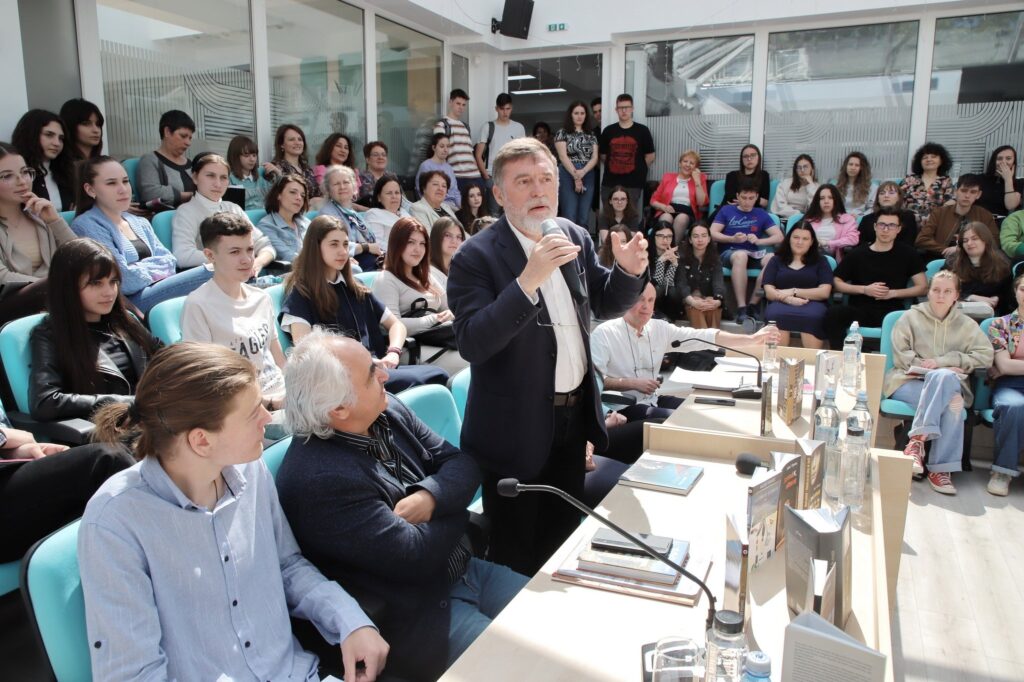
Matei Vișniec speaking at the International Days Festival in Suceava
With ‘Refreshing Memory’ as its theme, the 2022 edition is as political as ever in seeking to understand the past of post-communist Europe, placing equal emphasis on performance and forum, mixing it up to find new ways for theatre to find a political voice without losing the trust between performer and audience. It’s not as easy as it looks.
“If we ask ourselves the question can theatre and artists resolve geopolitical crises, then the answer is of course not,” says Vișniec. “Not in a direct way – but they can maintain and feed the debate. And at times, in its own way, theatre can physically take hold of these problems and dilemmas.”
A good example is Vișniec’s satire How to Explain the History of Communism to Mental Patients (Istoria comunismului povestită pentru bolnavii mintal), staged in Suceava with a 30-plus cast by Moldova’s Mihai Eminescu National Theatre. “It’s a play where I analyse the mechanics of dictatorship, how people gradually give in to force and become zombies without will or dignity. This is precisely what Putin wants to do to the Ukrainians.
“If Putin advances in Ukraine, if his armies destroy Ukraine square metre by metre, it is also the fault of the sleepwalking democratic countries who have not been able to advance their own model of society. It is also perhaps the fault of the hundreds of thousands of artists in these democratic countries who have allowed themselves to be caught up in the entertainment industry instead of remaining vigilant and serving culture as a pillar of counterpower in society.”
Zombies, in a way, feature in The Homecoming (Întoarcerea acasă), which sees the Matei Vișniec Theatre’s ensemble working with director Botond Nagy.
Like a lot of Vișniec’s work, the script was first written in French as Le retour à la maison, and it’s a dreamy poetic text that belies the dark absurdity of dead soldiers arguing with their also dead general to be at head of the proposed homecoming parade that he’s planning.
Vișniec urged Nagy and the cast “rip the script up” – which they were pleased to do, turning the play on its head to create a visually beautiful minimalist wave of monologues where the soldiers plead their case, crushed by the irony of their vitality, as arty lighting and shovelled grey earth fall onto their heads. And, of course, a Marxist-Leninist rap.
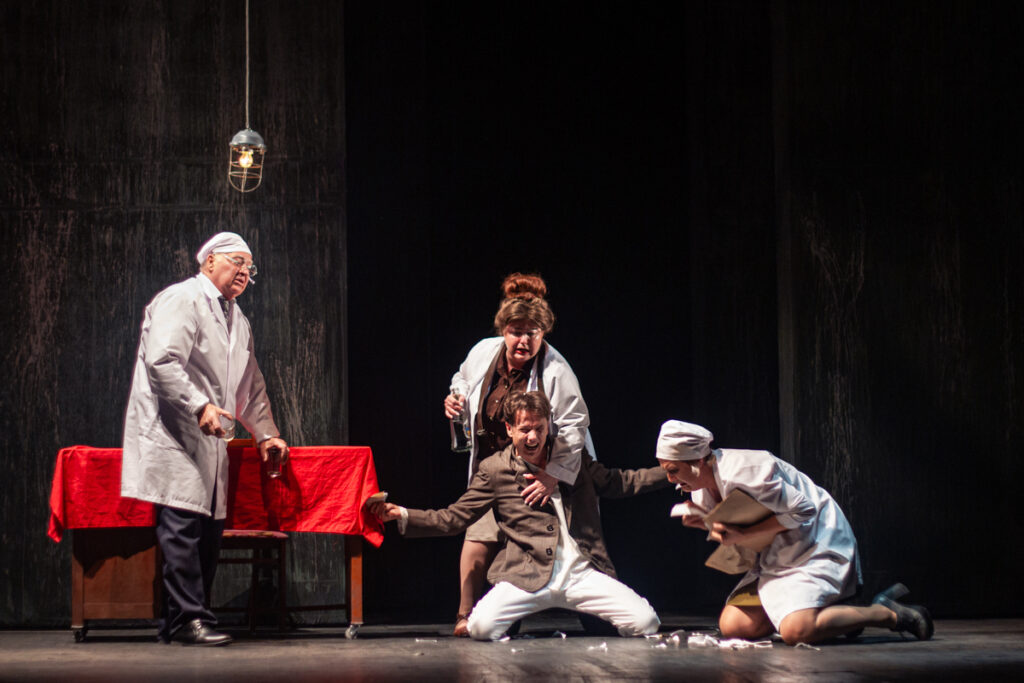
How to Explain the History of Communism to Mental Patients
The Homecoming was written 15 years ago to denounce the absurdity of war while also examining the contradictions of human nature. “This grotesque allegory that I imagined actually speaks about the very real tendency of the human species to repeat the mistakes and horrors of the past. At the moment, for example, we do not know the number of deaths in Ukraine, but the figures apparently are horrific. We know that the Russians and the Ukrainians have set up exchanges of bodies, that Moscow hides the truth about its casualties – which Kyiv does too.”
Romania as well as neighbouring Moldova, where the population are mostly Romanian speakers, traditionally view Russia as an existential threat – the Soviet Union imposed communism on Romania after the Second World War, and it had already occupied Moldova, where there was an attempt at forced Russification.
It follows that Eastern Europe and Western Europe do not have the same existential worries nor a shared perception of the danger that Russian neo-imperial ideology poses – but at least we all now know that powerful leaders like Angela Merkel were wrong. “I wanted us to talk about the mission of artists, so we can talk about this question of what artists can do against barbarism,” says Vișniec. “This is why I asked the festival this year to invite Neda Nejdana, the Ukrainian writer of several remarkable plays about the Revolution in Maidan Square in 2014 [presently working out of the Chernivtsi Drama Theatre from southwest Ukraine].”
From over the border, he also invited large-scale state theatre productions from Moldova. “I wanted Moldova to be here because the country is also being targeted by Moscow’s expansionist policy. The Moldovans are afraid at the moment, afraid of losing their independence and of being ‘punished’ by Putin because of their wish to approach Romania and the European Union.”
Freedom for Moldovan culture has a meaning (and consequences) far beyond the freedom of expression usually associated with the arts. We had a glimpse of this in Turin during the 2022 Eurovision Song Contest, where the country was represented by Zdob și Zdub’ Advahov Brothers. Their entry was Trenulețul [The Train], a song that risked expulsion from the contest and aggression from the Russian state for the crime of making a rail journey the metaphor for unification with Romania.
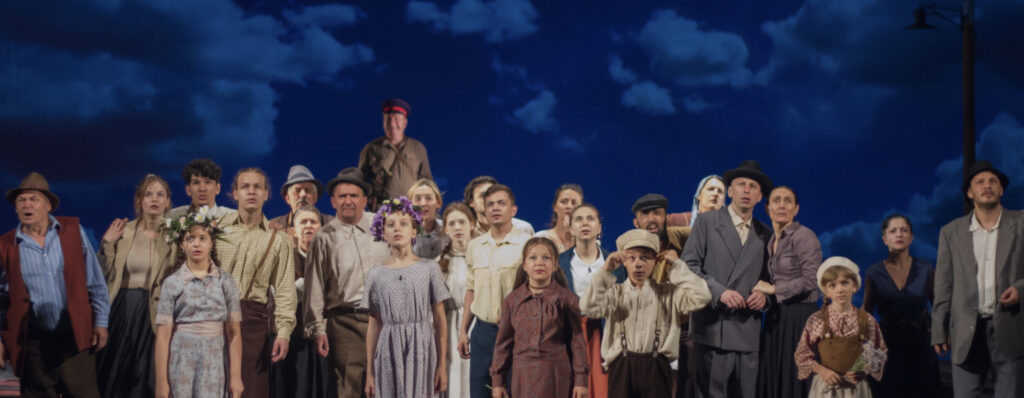
Siberian Files in Suceava
On stage in Suceava, audiences witnessed a more direct message in Siberian Files (Dosarele Siberiei), a powerful documentary drama about the Moldovans who were deported to the Soviet gulags in the 1940s. With a cast of 40 and hi-tech staging, the result is simultaneously epic and personal in a way I’ve rarely seen elsewhere – I can think of Imagine Nation’s mega-budget Anne, about the life of Anne Frank, as having a similar impact.
Petru Hadârcă, the artistic director of the Mihai Eminescu National Theatre, who also directed Siberian Files, sees the piece as a good choice for Refreshing Memory because Moldova is only now openly confronting its Soviet past. “2019 was the 70th anniversary of the second wave of deportations from Moldova,” Hadârcă explains.
“It was the biggest, when 35,796 people were deported from Soviet Moldova to Siberia and the Far East, of whom 11,899 were children and 14,033 were women. “Knowledge of these facts and events was prohibited during the Soviet period, and many realities were distorted and interpreted diametrically backwards by the official history. Since the 1990s researchers and historians have begun to uncover the documentary evidence, archives and statistics about the organised Soviet famine of 1946-1947 – in which 100,000 Moldovans died, some claiming 300,000, there is no consensus – the three waves of deportations, the anti-communist resistance and the political prisoners in the gulags.
“It was a shock, an emotional and cognitive shock for me because what we discovered had happened not in the Middle Ages, not a hundred years ago, but these were realities that were lived by my grandparents and my parents – my mother was eight years old and my father was nine during the famine.
“That was when the people in the town where I was born, Sângerei, started talking about the arrests and deportations in 1941, 1949 and 1950, when I discovered that we had neighbours, teachers, schoolmates who were from families that had been deported to Siberia, and we had never known.
“I had the feeling that I myself was also guilty of something, because I was a Pioneer and a Comsomolist (Komsomolets0 and I had believed in what we were told at school, that ‘we were liberated by the Soviet Army, that in 1940 we were backward, without culture, without a developed economy, that we were illiterate’.”
Hadârcă points out that the power of manipulation and propaganda and the fact that Moldova’s population were kept so isolated in terms of information on the periphery of the USSR is astounding. And, he warns, although his country is 30 years away from the fall of the Soviet empire, the forces that promote Soviet communist ideology with all its false narratives have never gone away – and they also continue to deny the atrocities.
The International Days Festival has particular resonance for Hadârcă because of Suceava’s proximity to Moldova (160km) and Ukraine (43km). And also because it brings international figures to this remote region to filter their thoughts and work through the local audience on a totally level playing field. It’s something remarkable – and humble – that you won’t see in Avignon or Berlin.
“What Matei has managed to do here deserves admiration, because through his personal effort and example he has managed to generate a cultural phenomenon and to catalyse young and creative forces, not only to inspire them but also to help them come together through creating a new theatre, an ensemble and to build an audience,” says Hadârcă.
“So we find ourselves as Moldovans in 2022 participating in a festival that reflects our own passion, which seems more urgent and self-aware. We have just gone through the shock of the war’s beginning in Ukraine, and since then we have lived under the fear and tension that the Russian tanks will roll into the streets of Chișinău again.”
Providing a surreal counterpart to the grim reality of Siberian Files is the absurdist How to Explain the History of Communism to Mental Patients, directed by Cristian Hadji-Culea and first staged by the Mihai Eminescu National Theatre in 2021. Hadji-Culea is also artistic director of the National Theatre of Iași, northeast Romania’s biggest city.
The plot follows a writer who goes the Central Hospital for Mental Disorders in Moscow, shortly before the death of Stalin, his mission being to offer therapy for the mentally ill through telling them the history of Communism. To his horror and our amusement, he realises that the hospital is a living metaphor for the regime’s harsh reality.
“When I decided to add Matei’s play to the theatre’s repertory,” says Hadârcă, “I thought it would be a summing up of the subject of dictatorship, a kind of conclusion of our history lesson about how people can be psychologically imprisoned, about the mechanism of human alienation that society went through in the twentieth century.”
“But today we watch with horror the figures that tell us that 70 per cent of the population of the Russian Federation agrees with the war in Ukraine, and yet Westerners especially do not understand how such a thing is possible.
“So come and see History of Communism and everything will be clear. In showing the mechanism of collective hysteria on stage, it explains not only how the mass horrors of the Stalinist period were possible but also how this mechanism can be reproduced at any time, anywhere. Today unfortunately we are witnessing the starting up of this diabolical machine again.”
Siberian Files ends with the exhortation: “Don’t forget, but don’t take revenge for us.” As Hadârcă explains: “It’s a phrase that appears in many of the memoirs of the victims of communism. ‘Let us not forget so as not to repeat and take revenge’, meaning we should not spread hatred but build our lives in peace and healthy understanding.”
Adds Vișniec: “Refreshing Memory also means understanding that democracy risks checking out of history if we don’t make the effort to reinvent it.
“It takes a lot of imagination and a lot of energy to relaunch, rethink, readapt the democratic ‘machine’. There are forces and ideologies on this planet that want to erase the word ‘freedom’ from our vocabulary. It is important to remember all this, and artists should be in the front line of the fight to preserve freedom.”
Main image: The Homecoming
For information, visit: https://www.teatrulmateivisniec.ro/
Nick Awde
Nick Awde is a journalist, playwright, editor, critic and producer. Based in the UK, he is co-director of Morecambe's Alhambra Theatre. Books include Equal Stages (diversity and inclusion in theatre), Mellotron, Women In Islam, and translations of plays by other writers. Much of his work focuses on ethnoconflict and language/cultural genocide.
